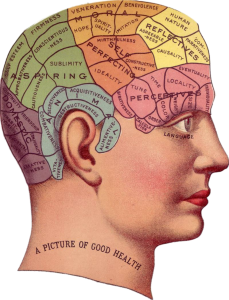***A warning to readers that the following article on Psychological abuse describes domestic violence scenarios***
Compensation for an Abusive Relationship
For two years, Evelyn* had been in an abusive relationship with a man in Taree on NSW’s Mid North Coast.
In mid-2018, Evelyn lodged an application under the Victims Support Scheme. This scheme helps compensate individuals who are victims of ‘acts of violence’.
From 2016 to late 2017 her partner abused her both physically and emotionally.
“I experienced emotional and physical domestic violence… on one occasion, in particular, he assaulted me including pulling me by the hair and bashing me in the head causing bruising on my ribs; lumps on my head.”
Evelyn got a diagnosis of complex PTSD and Major Depressive Disorder in 2018.
In September 2019, an Assessor determined that Evelyn was a victim of violence and that she should be compensated. However, the Assessor stated that Evelyn should only receive $1500, as the abuse she received did not result in Grievous Bodily Harm.
Evelyn applied for a review and got a rejection.
Again, she applied for a review of the decision, this time at the NSW Civil and Administrative Tribunal (‘NCAT‘).
NCAT considers: What is Grievous Bodily Harm?
The question for NCAT was whether the psychological injuries Evelyn suffered as a result of her violent attack amounted to Grievous Bodily Harm, commonly known as GBH. If Evelyn had suffered GBH, then she was entitled to a Victim Support Payment of $5,000, instead of $1,500.
GBH is a concept from criminal law meaning “really serious injury” 1. The scale of criminal assault and injuries is as follows, from most to least serious.
- Death
- Grievous Bodily Harm
- Wounding (breaking of the inner layer of skin, likely causing bleeding2)
- Actual bodily harm (‘ABH‘; any injury/hurt calculated to interfere with health or comfort that’s “more than a transient trifling”3)
- Common assault (apprehension of violence/general physical contact)
If that wasn’t sufficiently morose party conversation for you, examples of GBH include:
- fracturing ones face with accompanying brain haemorrhages4,
- suffocation with a pillow to the point of unconsciousness5,
- unlawful destruction of a foetus6, and
- not without controversy, transmitting HIV7.
Whether something is or is not a “really serious injury” is a question for the Tribunal of Fact. In criminal trials, this is usually our jury. If the jury unreasonably assessed an injury as GBH, such as a facial fracture that required minimal surgery to fix8 their finding may be overturned on appeal.
 Could Evelyn’s Psychological abuse Injuries be GBH?
Could Evelyn’s Psychological abuse Injuries be GBH?
While Evelyn had suffered physical injuries at the hands of her partner, none of these met the high threshold for GBH. The question for NCAT was whether Evelyn’s significant psychological injuries, PTSD and Major Depressive Disorder rose to the level of GBH. In their judgement, the Tribunal acknowledged that Evelyn’s life had been severely affected by the attack.
At the time of the NCAT hearing, NCAT noted that “there is no evidence…that supports finding that Evelyn has recovered from the effects of the injury that directly resulted from the act of violence.”
The idea that psychological injuries can constitute criminal “bodily harm” is not new – though uncommon in the legal discourse.
Courts have accepted that ABH was not limited to “to the skin, flesh and bones of the victim”. Further, the High Court has noted that the archaic requirement for GBH to only be produced by “an immediate physical injury” could not be sustained in the modern age.
 A Victory for Individuals Experiencing Domestic Violence
A Victory for Individuals Experiencing Domestic Violence
In her decision, NCAT Senior Member Riordan was satisfied that Evelyn’s psychological injuries can properly be considered as being “really serious”. Therefore, they amounted to GBH.
Additionally, Riordan found even if the attack on Evelyn had only triggered underlying psychological conditions from her tough childhood, the ‘eggshell psyche’ principle applied. Evelyn’s abuser and the Tribunal – would take Evelyn ‘as they found her’, and so could not deny the attack as the cause of Evelyn’s PTSD and Depression.
As a result, Evelyn was entitled to a higher level of compensation. She received $5000 instead of the original $1500.
The decision represents a victory for victims of domestic violence. Not only is the decision legally appropriate, but it also nods to a modern understanding of what “injury” and “harm” look like. Part of domestic violence’s insidious nature is its ability to leave invisible and detrimental scars.
The Tribunal’s recognition of Evelyn’s psychological injuries as a “really serious injury” nods to a modern, evidence-based understanding of psychological abuse. It is a vindication of her trauma.
If this article has caused distress you can contact
NSW Domestic Violence Helpline – 1800 65 64 63 or 1800RESPECT – 1800 737 732
*Names have been changed.
The full NCAT decision can be found here.
- Haoui v R [2008] NSWCCA 209, [129] [Beazley J]
- Shepherd [2003] NSWCCA 351 (Kirby J)
- R v Donovan [1934] 2 KB 498, 509 [Lord Hewart CJ, Swift and Du Parcq JJ]; confirmed Swan v R [2016] NSWCCA 79
- See Tangye (1997) 92 A Crim R 545.
- See Rhodes (1984) 14 A Crim R 124.
- R v King (2003) 59 NSWLR 472
- See Aubrey (2017) 343 ALR 538; see also Neal (2011) VSCA 172.
- See, eg, Haoui v R [2008] NSWCCA 209
- [1994] 2 All ER 552.

Oliver is a law graduate who is passionate about the ways in which the law can alleviate injustice. Oliver practices across intentional torts, abuse, privacy and defamation.
-
Oliver Creaghhttps://obriensolicitors.com.au/author/oliverc/
-
Oliver Creaghhttps://obriensolicitors.com.au/author/oliverc/
-
Oliver Creaghhttps://obriensolicitors.com.au/author/oliverc/
-
Oliver Creaghhttps://obriensolicitors.com.au/author/oliverc/








